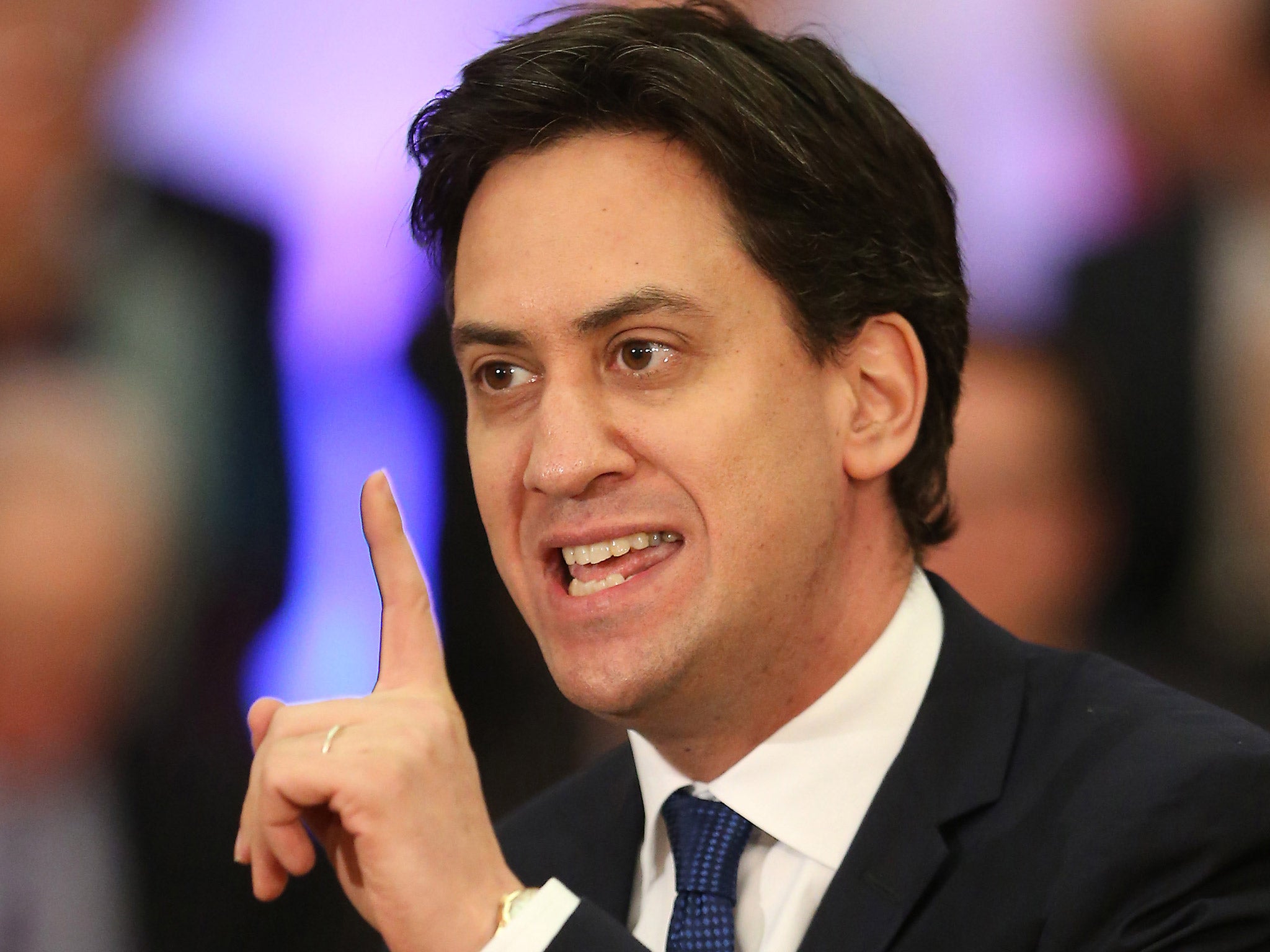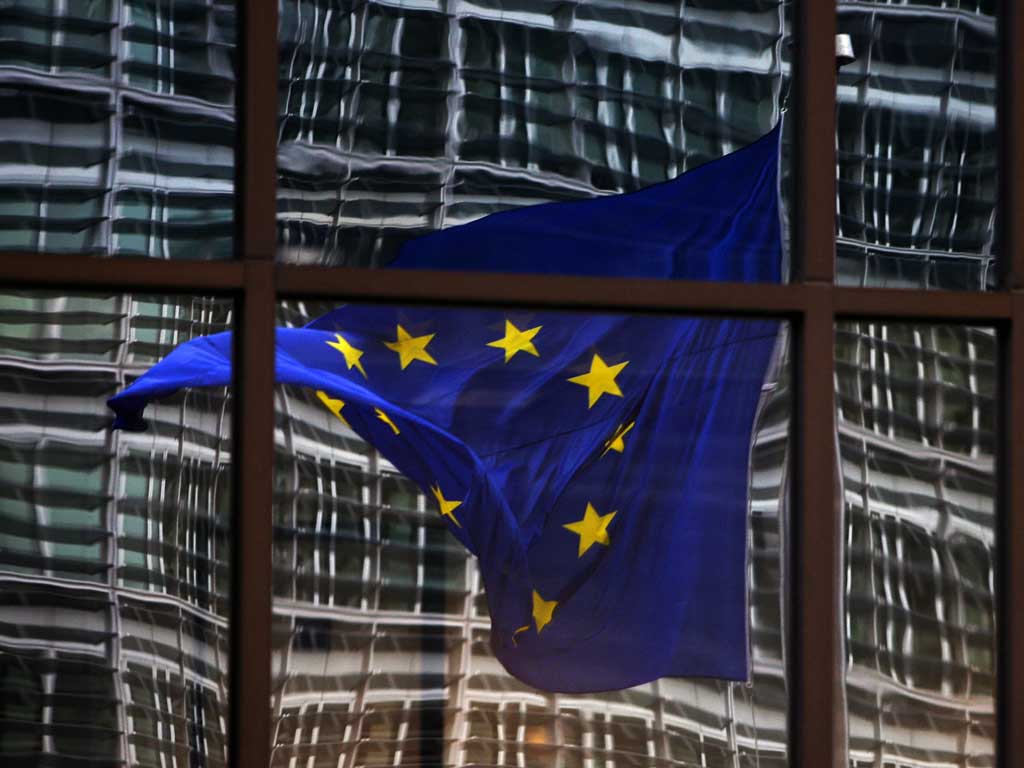No EU referendum under Labour: Ed Miliband to reveal that vote on membership is ‘unlikely’ in next Parliament if party wins power
In a landmark speech, Mr Miliband will declare that a Labour government’s top priorities would include the cost-of-living crisis and the NHS

Your support helps us to tell the story
From reproductive rights to climate change to Big Tech, The Independent is on the ground when the story is developing. Whether it's investigating the financials of Elon Musk's pro-Trump PAC or producing our latest documentary, 'The A Word', which shines a light on the American women fighting for reproductive rights, we know how important it is to parse out the facts from the messaging.
At such a critical moment in US history, we need reporters on the ground. Your donation allows us to keep sending journalists to speak to both sides of the story.
The Independent is trusted by Americans across the entire political spectrum. And unlike many other quality news outlets, we choose not to lock Americans out of our reporting and analysis with paywalls. We believe quality journalism should be available to everyone, paid for by those who can afford it.
Your support makes all the difference.Labour has decided not to match David Cameron’s pledge to hold a referendum on Europe in the next Parliament, Ed Miliband will announce.
The Labour leader, who has rejected pressure from his own party to promise the public a vote on Britain’s EU membership, will say that a referendum is “unlikely” to be needed in the 2015-20 administration.
In a landmark speech in London, he will declare that a Labour government’s top priorities would include the cost-of-living crisis and the NHS. He will draw a contrast with a Conservative government that, he will claim, would be distracted by a renegotiation of the UK’s EU membership terms that could take several years. However, Mr Miliband will strengthen Labour’s commitment to an eventual referendum by promising a straight in/out vote if there were a “significant transfer of powers” from the UK to the EU.
Until now, Labour has supported a referendum on the European treaty that would allow such a transfer, rather than an in/out vote that could result in the UK’s exit.
Labour’s decision draws a clear dividing line between the party and the Tories at next year’s general election. The Conservatives are expected to warn voters: “Vote Ukip, get Miliband and no say on Europe.”
Read more:
Labour Eurosceptics accuse Miliband of 'shoddy compromise' over 'no referendum' vow
Labour’s move will bring the party into line with the Liberal Democrats and could boost the prospects of a Lib-Lab coalition or looser agreement if there is another hung Parliament. Labour will promise to amend legislation passed by the Coalition, which guarantees a referendum on any treaty involving a “significant transfer of powers” to Brussels. The Liberal Democrats already support an in/out referendum.
Labour’s stance was hammered out at a two-hour session of the Shadow Cabinet. Members told The Independent that there was strong support for what one described the “clear, consistent and principled pro-European stance” proposed by Mr Miliband and Douglas Alexander, the shadow Foreign Secretary. Another said: “We are not going to chase Ukip.”
Previously, Jon Cruddas, who heads Labour’s policy review, and several Labour MPs had urged Mr Miliband to back a referendum and Ed Balls, the shadow Chancellor, has argued that the party should not close the door to one.
In an attempt to reassure Eurosceptic voters, the Labour leader will say today that the EU “needs to change” and that its reputation is at a low ebb. He will say he understands public concern about the inexorable drive towards “ever-closer union” and that Labour would seek the return of some powers to the UK. He will announce that a Labour Government would seek reforms to the EU such as:
* ensuring people from member states joining the EU in future would not have the right to work in Britain for 10-14 years rather than seven;
* introducing tighter rules on EU migrants claiming child benefit, child tax credit and jobseeker’s allowance;
* halting benefits for EU migrants’ children not living in Britain;
* making it easier to deport newly-arrived EU nationals who commit crimes;
* stopping firms exploiting EU migrant workers and using them to undercut wages;
* protecting the NHS from EU competition law.
Mr Miliband will outline “a clear set of conditions” under which Labour would call an in/out vote. But with no proposals on the table for Britain to cede more powers to the EU, he will make clear that these conditions are “unlikely to be met” by 2020. He will reject Mr Cameron’s “artificial timetable” of a 2017 plebiscite, saying the uncertainty before then will damage British businesses as they fear the UK is drifting towards the exit door.
Mr Miliband does not want a Labour administration to be overshadowed by Europe. Some Labour MPs believe he would have to resign as prime minister if he called an in/out vote, recommended staying in and lost the referendum.
His strategy will be seen as high risk by some of his backbenchers, who are increasingly worried that Ukip is appealing to the party’s traditional working class base. Ukip is bound to attack Labour’s refusal to promise a referendum when the two parties battle it out for first place in the European Parliament elections in May. The Tories are expected to come third.

Mr Miliband believes there would be little prospect of securing the agreement of the EU’s other 27 countries for new UK membership terms by 2017. He will warn voters that a Cameron-led administration would be distracted by the complicated talks as Mr Cameron tried to appease his Europhobic backbenchers. “It would be back to John Major,” said one Shadow Cabinet source. In contrast, Labour would focus on the domestic agenda, notably the economy.
Today John Mann, a Labour MP, appealed to Mr Miliband to let the people have a say on Europe. He said: “Labour needs to be a party and Ed a leader who listens to public opinion”. He sent Mr Miliband a survey of nearly 3,000 Labour and undecided voters in his Bassetlaw constituency in Nottinghamshire, which found that 52 per cent want the UK to leave the EU; 17 per cent want to stay in and 31 per cent are unsure.
Mr Mann said: “Labour has always been the voice of working class people. On Europe it’s not credible not to trust the people. Now is the right time for Ed Miliband to back a referendum on Europe”.
Join our commenting forum
Join thought-provoking conversations, follow other Independent readers and see their replies
Comments